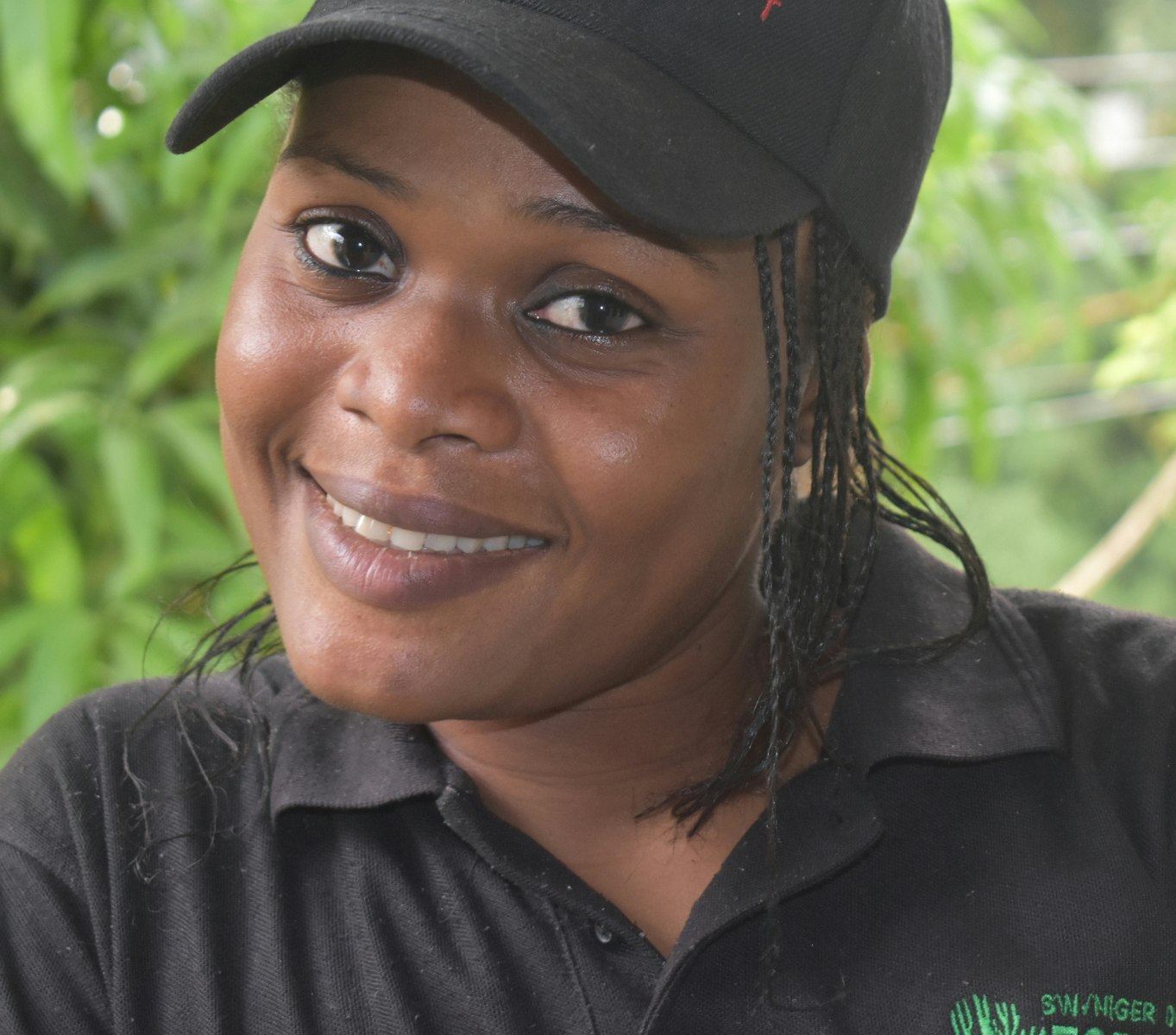NEW DISCOVERY
International efforts have been unsuccessful in obtaining information on the evolutionary linkage of chimpanzee populations in southwestern Nigeria and the Niger Delta. Over the past eight years, Rachel and her team at SW/Niger Delta Forest Project have been leading a genetic study which in 2018 revealed that whilst populations found here share ancestry with the Nigeria-Cameroon chimpanzee, they are in fact a distinct group. 
GOVERNMENT BACKING
The discovery bolstered the need to protect these unique chimpanzees and helped garner support for their conservation. The most viable chimpanzee populations remaining in southwestern Nigeria are found in the Idanre forest cluster and Ise forest reserve. Habitat here is disappearing at an alarming rate, with over 80% of forests lost to unregulated and illegal farming and logging, as well as targeted hunting of these great apes. Additionally, the reserves are poorly managed and lack resources to enforce wildlife laws. Thanks to Rachel’s efforts, state government recently backed the creation of one of two proposed conservation areas in these sites.
MAINSTREAMING CONSERVATION
Rachel is working alongside local authorities to limit illegal activity and scale up enforcement within the reserves. She will set up management and protection for the new conservation areas where extractive activities are prohibited, giving chimps a chance to recover. Together with her team, Rachel will advocate for enhanced state policies and the revision of existing legislation to improve chimpanzee protection. Through campaigns, she will target communities neighbouring protected areas to stop the sale of chimpanzee body parts and in the process, promote the sites’ natural heritage to build grassroots support for conservation.
Rachel and her team will:
- Establish 40,000 ha of conservation areas within the Idanre and Ise forest reserves
- Enforce patrolling efforts to reduce illegal hunting, farming and logging
- Advocate for revised laws to protect chimpanzees and other wildlife
- Increase public awareness through online, radio and TV campaigns
Top FACTs:
- This project will secure 20% of chimpanzee habitat in southwest Nigeria
- Most wildlife preservation laws in the state were created in the 70s and have since become obsolete
- Other species protected by this project include monkeys, elephants, hornbills and tree pangolins
“Conserving chimpanzees will have a multiplier effect on other wildlife and on this fast disappearing forest ecosystem.” – Rachel Ikemeh
Follow Rachel on social media @SWNigerDelta, view more photos of her work here.
Image credit: Jonathan Mbu/www.therainforester.org (banner image), ZSSD R Whytock (young chimpanzee). Film credits: Jonathan Mbu, Osiris Doumbe & Sekakoh Organisation, San Diego Zoo Global, The South West Niger Delta Forest Project
PROJECT UPDATE
2022 CONTINUATION FUNDING
Sustaining fragile chimpanzee populations in southwestern Nigeria
£70,000 over 2 years
After several years of research, Rachel Ikemeh and her team revealed that populations of Nigeria-Cameroon chimpanzees in southwestern Nigeria were in fact a unique, genetically distinct subgroup – and one that was already on the brink of extinction. Using this discovery to bolster the need to conserve their forest habitat, Rachel successfully established the Ise Forest Conservation Area with her Whitley Award in 2020. Since then, wildlife and surrounding communities in the Ise-Ekiti forests are already benefitting from new protection and management efforts, making this one of Nigeria’s most optimistic conservation stories, and Rachel’s multi-stakeholder approach is being considered for adoption by other NGOs across the country.
Despite this success, the area remains vulnerable to multiple pressures, such as illegal logging, and increased economic hardship and rising inflation rates are driving opposition to conservation efforts which prevent the use of natural resources as a commodity. To add to these challenges, an upcoming change of administration brings uncertainty around future government support of conservation initiatives.
Rachel will use Continuation Funding to sustain forest management efforts and bolster law enforcement in the Ise Forest Conservation Area, expanding her participatory surveillance network to additional communities, and increasing the number of rangers while building their capacity to patrol and monitor the region She will also engage the new government administration, and enhance socio-economic benefits for communities by developing domestic tourism enterprises, encouraging multi-stakeholder support for chimpanzee protection in the region for years to come.



